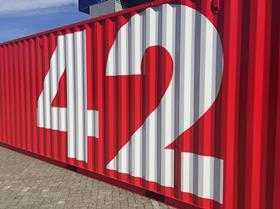
A smart container has left the Port of Rotterdam on the first leg of a global data-collecting mission toprovide insight into the challenges faced during transit.
Over the course of two years ‘Container 42’, which houses various sensors and communications equipment, will be measuring changes in parameters like vibration, slope, position, sound, local air pollution, humidity and temperature.
Fitted with solar panels, the unit can also be used to determine how much power a container can generate during a given journey by ship, train or truck.
The container will be making its first stop in early June, in Munich, where it will be presented to the public at the Transport Logistic 2019 trade event.
Rotterdam has the ambition to be the world’s ‘smartest’ port,and the Container 42 mission will contribute to the development of a so-called ‘digital twin’ for the port: a digital representation of the physical port area.
The port also uses its cloud-based Internet of Things platform to collect and process data collected by sensors installed throughout the port area. This provides users with real-time information about local infrastructure, water and air quality, among other things, allowing the port of Rotterdam to improve its services.
The port added that the digitalisation of its services will contribute to safer, swifter and more reliable forwarding of cargo, as well as eventually enabling Rotterdam to accommodate autonomous shipping.



